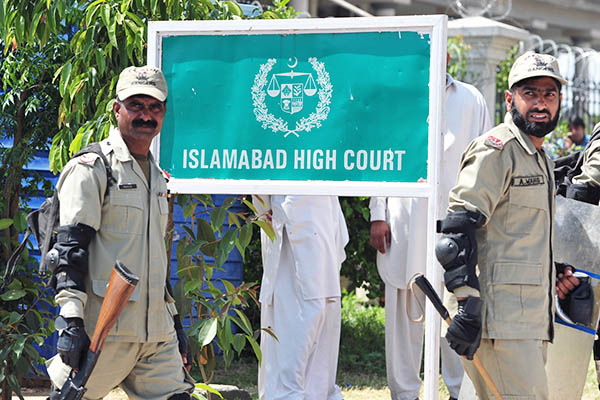
Farooq Naeem—AFP
Section 89 of the Pakistan Penal Code, which allows for corporal punishment ‘in good faith,’ has been suspended ‘until further notice’
The Islamabad High Court on Thursday directed a complete ban on corporal punishment “until further notice” in educational institutions located in the federal capital.
The court rendered the ruling while hearing a petition filed by singer-turned-activist Shehzad Roy. During the hearing, Roy’s counsel informed the court that a child had recently died in Lahore due to the excessive corporal punishment meted out to him. He urged the court to abolish Section 89 of the Pakistan Penal Code (PPC), which allows parents, guardians and teachers to use corporal punishment in “good faith” and protects them from any consequences.
Delivering his decision, IHC Chief Justice Athar Minallah said that Parliament was currently developing a bill on corporal punishment. To this, Roy’s lawyer said that it would serve to legislate corporal punishment, while his client was seeking a complete ban on it.
The court subsequently suspended Section 89 of the PPC in the federal capital, and ordered the government to submit a reply to the petition by March 5.
Under Section 89 of the PPC, any act of corporal punishment against a “child or insane person”—where a child is defined as anyone aged 12 or under—is permitted so long as it for the “benefit.” However, it notes that this law does not apply if the punishment causes death; is known to likely cause death; could cause grievous hurt or infirmity; or be used to abet in the cause of any offense.
Reacting to the ruling, Roy thanked the court for the temporary ban during a conversation with private broadcaster Geo News. He said under the existing rules, it was not classified as murder if a teacher’s beating of a child “in good faith” resulted in their death.
He noted that only Sindh had a working law in this regard, adding that while court rulings had stopped the practice in other provinces, no legislation existed to codify it. He also shared research from Harvard University that had found that any young child who was beaten developed the same level of trauma as one who had suffered sexual abuse.
